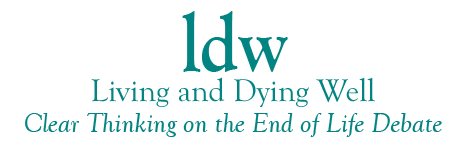Today the British Medical Association voted to abandon its traditional opposition to assisted dying – a euphemism for assisted suicide and euthanasia – in favour of a position of neutrality.
At the 2021 Annual Representative Meeting, a total of 149 votes were cast in favour of the change in policy, with 145 votes cast against Motion 70 while eight voting representatives abstained.
By any standard, a difference of four votes is an incredibly slim margin. At best, it represents a pyrrhic victory for those people who seek to change the law on assisted suicide, partly by persuading the BMA to change its stance. Today it is impossible for such campaigners to claim the “overwhelming” victory they sought and predicted, or even boast of a majority since 149 votes from 302 fell short of achieving that particular target.
Let’s be clear about exactly what this vote truly signifies. It emphatically does not either propose or support the involvement of doctors in assisted suicide and euthanasia. Rather, it was a vote on the question of whether the BMA should represent the views of all members, irrespective of their views on assisted suicide and euthanasia, including those who are not licensed to practice.
Yet the BMA was warned by delegates during the debate that a position of neutrality would be used to advance the parliamentary campaign to change the law because it might suggest to legislators and the public that doctors no longer oppose such practices.
It was significant also that the majority of speakers made clear that any move to assisted dying must not involve the medical profession and that doctors and nurses cannot be the gatekeepers to assisted suicide and euthanasia.
Their contributions reflected a 2020 poll which found that a majority of doctors who look after dying patients oppose any involvement in assisted suicide and euthanasia in any way whatsoever.
Throughout the meeting the BMA was reminded time and again about how the medical profession is on its knees. The NHS is short of 50,000 doctors and if “assisted dying” were to become law in the UK it is certain that resources would be diverted from services where they are most needed to facilitate practices which are blatantly contrary to established medical ethics.
If the UK followed the examples of such countries as Belgium and Canada it will undoubtedly see, over time, a haemorrhage of medical staff, particularly in palliative care. In Canada, many have already left. They have become expected to participate in the killings of their patients instead of caring for them.
The NHS is in crisis and hospices depend on donations and fundraising. People must get the care they need, not be frightened into thinking an early death solves the problem.
If more doctors are lost because of “assisted dying” and the crisis within the NHS consequently becomes worse, then the vote today might ultimately be seen as a very sad moment indeed for health care in this country.
